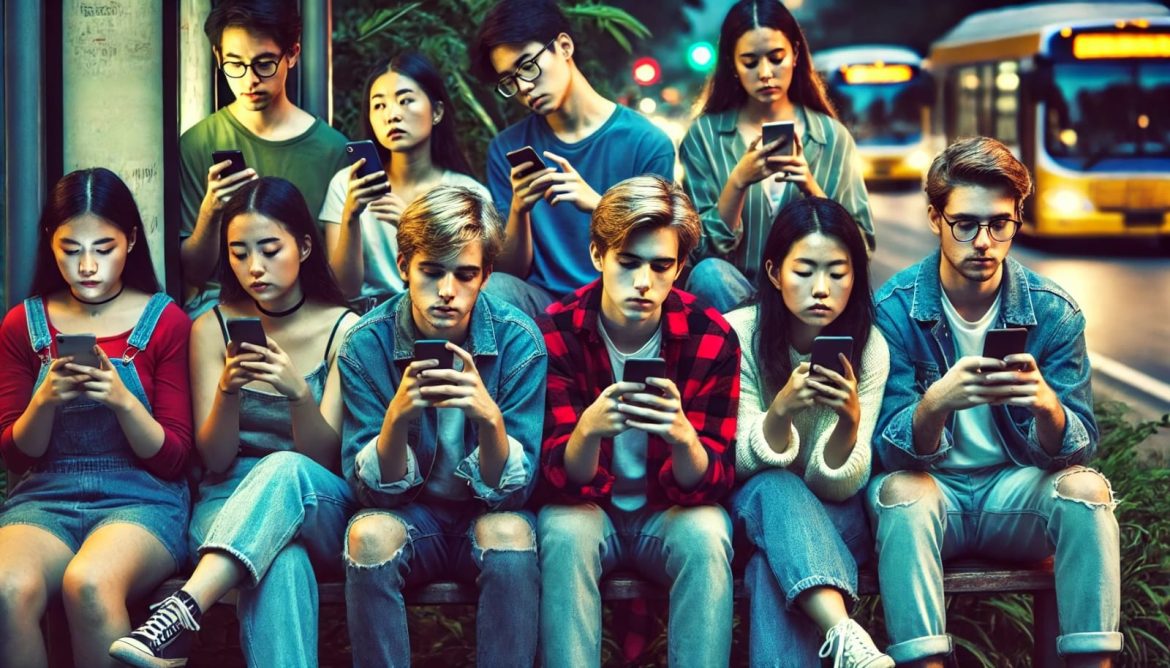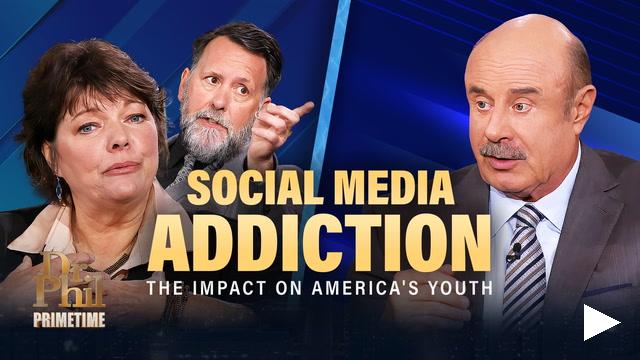In a compelling discussion featured in two programs titled Targeted, Addicted, Crippled and Online Addiction Destroying American Youth on MeritPlus Media, Dr. Phil McGraw and his expert guests explore the destructive nature of social media, particularly its impact on teenagers. They delve into how social media platforms, driven by profit, manipulate users’ mental health, shape their brains, and create an epidemic of addiction. This article examines the critical points raised during these discussions, highlighting the alarming effects of social media on today’s youth.
The Dark Allure of Content
Content designed to provoke strong emotional responses keeps users clicking. Upsetting or distressing content leads to increased engagement, causing users—especially teens—to spiral into a cycle of anxiety and depression. Platforms like Meta (Facebook) and Alphabet (Google) thrive on this interaction, profiting immensely from users’ suffering.
The Profits of Mental Illness
“Every click generates revenue,” and it’s evident that social media giants are aware of the mental toll their platforms take. By prioritizing profits over users’ well-being, these corporations effectively exploit mental illness. This exploitation is not merely incidental; it is a strategic decision that prioritizes financial gain above the health of users.
The Erosion of Freedom and Democracy
A troubling aspect of social media is the erosion of free thought. The business models of these platforms can undermine democratic principles, as they manipulate the information users see. This manipulation is compounded by the fact that corporations are not held to the same First Amendment standards as the government, allowing them to control narratives and information dissemination without accountability.
The Role of Government and Corporations
Concerns arise regarding the meetings between social media companies and government entities, which can lead to censorship of critical viewpoints. An epidemic has been created, and the urgency to address this issue is palpable. It is crucial to recognize that these platforms may suppress discussions that expose their detrimental impacts.
Related:
- Eight Strategies for Staying Steadfast and Avoiding Missteps as a Christian ~ Uncovering the Secrets to a Fruitful and Impactful Christian Life
- The Battle for Truth: Navigating the Dangers of Deception in the Last Days 2 Peter 1:1-2:9 – (Part 1)
- The Battle for Truth: Navigating the Dangers of Deception in the Last Days 2 Peter 1:1-2:9 (Part 2)
- The Battle for Truth: Navigating the Dangers of Deception in the Last Days 2 Peter 2 Peter 2:10-22 (Part 3)
- The Battle for Truth – Navigating the Dangers of Deception in the Last Days 2 Peter 3 (Part 4)
- The Battle for Truth | Navigating the Dangers of Deception in the Last Days 2 Peter 3 (Part 5)
- The Battle for Truth | Navigating the Dangers of Deception in the Last Days 2 Peter 3 (Part 6)
- The Battle for Truth | Navigating the Dangers of Deception in the Last Days 2 Peter 3 (Part 7)
- The Battle for Truth | Navigating the Dangers of Deception in the Last Days 2 Peter 3 (Part 8)
- The Battle for Truth | Navigating the Dangers of Deception in the Last Days 2 Peter 3 (Part 9)
Targeting and Addiction: A Dangerous Combination
Teenagers are being specifically targeted by these platforms, leading to addiction patterns akin to substance abuse. There is a direct link between social media usage and dopamine release, drawing a parallel to the brain’s response to addictive substances like opioids or cocaine.
The Science of Social Media Addiction
“Addiction is the right word.” The algorithms designed by social media companies exploit psychological vulnerabilities. These platforms are engineered to be addictive, likened to cigarettes, which have long been recognized for their addictive qualities.
The Psychological Toll on Youth
As teens spend an average of five hours a day on social media, the consequences on their mental health are severe. Statistics reveal that one in three teen girls experiences worsened body image issues due to social media exposure, with platforms like Instagram being blamed for increasing rates of anxiety and depression among youth.
Loneliness in the Digital Age
In a startling revelation, it’s noted that one in four millennials has no friends, making them the “loneliest generation.” This loneliness is compounded by a reliance on social media for social interaction, often lacking the depth and authenticity of face-to-face relationships. Young people today have less than one true friend, emphasizing the cost of prioritizing online connections over real-life relationships.
The Consequences of Digital Dependency
Prolonged social media use stunts emotional and social development in teens. This has been likened to a form of “digital dementia,” where the loss of memory, language, and problem-solving skills significantly impacts daily life. The ability to moderate behavior in children is compromised, affecting their overall mental health and social skills.
A Call to Action: Reclaiming Real Life
Despite the grim outlook, there is hope. A conscious effort to step away from screens and engage in physical and meaningful relationships is essential. “You can change this,” and prioritizing real-life interactions over digital ones is vital for fostering healthier habits.
Conclusion: The Need for Awareness and Action
The discussions on Dr. Phil Primetime on MeritPlus Media serve as a vital reminder of the need to recognize the addictive and destructive nature of social media. As these platforms continue to shape the lives of millions—particularly teenagers—it is crucial for parents, educators, and society at large to take action. By fostering awareness and encouraging healthier habits, we can begin to combat the epidemic of social media addiction and its devastating effects on mental health and social development.





